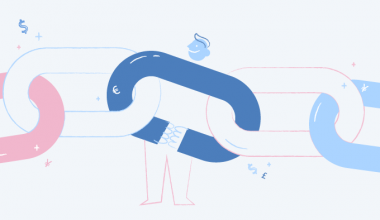Have you ever thought about how banks make money? While the banking industry as a whole might be fairly complex, the manner in which banks make money can be surprisingly simple to grasp. Here’s a quick review of the several ways banks make money, as well as some essential characteristics of each.
What is a Bank?
Banks are for-profit institutions that collect deposits and make loans. Deposits are funds that customers place in a financial institution with the knowledge that they can withdraw them at any time or at a certain future date. A loan is a money given to a borrower that must be repaid with interest. Financial intermediation refers to the act of accepting deposits and issuing loans. However, a bank’s operations do not stop there.
Bank checking accounts are used by the majority of consumers and businesses to pay their expenses, putting banks at the heart of our payment system. Banks are the primary provider of consumer loans (loans for automobiles, houses, and education), as well as the primary lenders to businesses, particularly small firms.
Banks are sometimes referred to as the engine of our economy, in part because of these functions, but also because of the important role banks play as instruments of the government’s monetary policy.
How Do Banks Create Money?
Banks cannot lend out all of the deposits they receive; otherwise, they would run out of funds to pay out to depositors. As a result, they preserve both primary and secondary reserves. Cash, deposits due from other banks, and Federal Reserve System reserves are examples of primary reserves.
Secondary reserves are securities purchased by banks that can be sold to meet short-term cash needs. These are often government bonds. The percentage of deposits a bank must keep on reserve, either at the local Federal Reserve Bank or in its own vault, is mandated by federal law. Excess reserves are any funds a bank has on hand after meeting its reserve requirement.
Excess reserves are what generates money. This is how it works (assuming a 20% reserve requirement): You make a $500 deposit in your bank. your bank keeps $100 to meet its reserve requirement but lends Ms. Smith $400. She spends the money on an automobile. The Sav-U-Mor Car Dealership deposits $400 into its bank account. Their bank retains $80 on reserve but can lend out the remaining $320 as excess reserves. When that money is lent out, it becomes a deposit in a third institution, and the cycle begins again. As a result of this example, your original $500 has grown to $1,220 on deposit at three different institutions. This is known as the multiplier effect.
The multiplier’s magnitude is determined by the amount of money that banks must have on reserve.
How Do Banks Make Money?
Traditional banks make money in a variety of ways, depending on the type of bank and its target clients.
Community banks make their money primarily by lending money to local citizens and small companies. The funds are derived from depositor funds kept in various sorts of bank accounts. While many large banks make the majority of their revenue from interest, they derive a greater proportion of their revenue from non-interest sources than small banks.
Large banks are frequently divided into sections that focus on distinct sorts of customers and services. Their commercial banking or retail banking sections, for example, may provide standard bank services like deposit accounts (such as checking or savings) and personal and business loans. Their investment banking sections, on the other hand, may assist large corporate and government clients in raising funds, managing their funds, and investing the bank’s funds.
How Banks Make Money From Interests and Loans?
Many banks make the majority of their money by collecting interest on loaned funds, such as home loans, auto loans, or personal loans offered to clients. Many banks provide loans to both small and large firms. Customers who hold a credit card and carry a balance may be required to pay interest on their credit card debt.
How Banks Make Money With Fees
Banks can also make a lot of money via banking fees. These might vary greatly depending on the sort of account or service you have with the bank, but they may include…
#1. Bank account fees
Banks may charge you a monthly maintenance fee for having a checking or savings account. You may also be charged fees to use bank-related services, such as withdrawing money from a non-bank ATM, making purchases with your credit or debit card in countries other than the United States, or receiving a money order or cashier’s check. Account-related fees for bill payment services, overdrafts, and insufficient funds in your account may also apply.
#2. Credit card fees
Cardholders may be charged an annual fee to open and use the bank’s credit cards. Usage-based fees are also frequent for cash advances, balance transfers, late payments, and exceeding the credit limit. In addition to late fines, failing to make a payment 60 days or more beyond the due date may result in a penalty annual percentage rate (or APR).
#3. Loan and service fees
Banks may charge fees when they make loans or sell other financial items like insurance policies. Instead of receiving interest from the borrower, some banks will make loans and then sell them to another financial organization. The bank may still profit from the loan origination fee and sale, or it may charge fees to service the loan.
#4. Investment fees
Banks that provide investment services may receive fees for managing their clients’ money and providing brokerage services (a fee each time you buy or sell a stock, for example). Commissions or fees may be earned by banks that produce or sell mutual funds, annuities, and other financial products.
How Banks Make Money With Interchange Fees
Banks can also profit when you use their debit or credit card to make a purchase. When a merchant accepts a credit card, he or she must pay a merchant discount fee. A percentage of the discount charge is paid to the issuing bank for cards issued by banks (such as Visa and Mastercard credit and debit cards). This is known as an interchange fee.
Merchant accounts are also available from some banks for businesses who want to take debit and credit cards. They can then charge the merchant for merchant processing costs on card-based sales.
Other Methods Banks Make Money
Banks can generate non-interest income in different ways.
- Investments — Banks may be able to invest their own money in addition to generating fees and commissions on their customers’ investments.
- Advisory services – Some banks make money by serving as consultants to other businesses. Individuals and businesses may be sold research or investment ideas. Entities may also hire a bank to assist them with money raising, public offers, and mergers and acquisitions.
- Commissions – Banks may form alliances with insurance agents, brokerages, financial services, and other businesses in exchange for a commission on customer referrals.
Do All Banks Make Money in the Same Way?
In a nutshell, no.
While many banks make the majority of their money from interest and fees, the importance they place on different income streams varies. This is due to the fact that banks provide two sorts of services: commercial and investment.
Some banks specialize in business banking. Some concentrate on investment banking. Others, but not all, provide goods that fall into both categories, and those who do may make more money through one sort of banking than another.
Understanding what your bank has to offer will help you understand why they charge the interest and fees they do.
Commercial Banking
Because commercial products are available for people and small to medium-sized businesses, you are probably more familiar with commercial banking. In fact, when you hear the term “bank,” it’s usually in relation to a commercial bank. A commercial bank’s products include deposit accounts (checking and savings accounts) and loans (auto loans, home loans, etc.).
Investment Banking
Products and services for the “big boys” are referred to as investment banking. We’re talking about corporations, wealthy individuals, and even governments. These organizations provide financial counseling and wealth management, as well as trading activities.
Credit Unions
At first look, credit unions and banks appear to be nearly identical, and in many respects, they are. Both, for example, charge customers interest and fees. One noteworthy distinction is that credit unions are non-profit organizations owned by their members, whereas standard commercial banks are controlled by shareholders.
The reason this distinction counts in terms of money is that credit unions only make enough to pay their own expenditures, whereas banks strive to make a profit. As a result, credit unions may often provide lower fees and interest rates to their customers.
However, one of the biggest disadvantages of working with a credit union is that they are often smaller than commercial banks, which means they have fewer branches and fewer goods to offer.
How To Avoid Bank Fees
Banks make money by charging fees to their clients, but there are methods you may do to avoid them. While not all bank fees are avoidable, use these guidelines to avoid losing money on unnecessary charges.
#1. Make Use of Online Services
Most banks offer online banking services that allow you to access your accounts from anywhere in the world. Sign up for an online account or go into your bank’s mobile app to make use of these services. Take care not to share your login information with others and implement proper security measures, such as using a strong password or allowing security questions.
#2. Keep an eye on your account balances.
When you have access to an online banking platform or app, use it to monitor your accounts. Check your account balance to avoid being charged non-sufficient funds or overdraft fees if you overdraw. Use this simple internet access to keep an eye on your account for any transaction problems or fraudulent activity. If you notice anything unusual, inform your bank right away.
#3. Set up automatic notifications and payments
Human error can lead to expensive bank fees. You can use your app or online banking platform to automate loan payments, receive notifications when a direct deposit is made to your account and set alerts for when your balance falls below a certain threshold or goes into overdraft. Allow these processes to do the work for you and you will never have to pay another bank fee again.
#4. Sign up for Direct Deposit.
Another simple automated technique that can help you avoid unwanted costs or repercussions is direct deposit. Some bank accounts require a minimum balance to remain open, and the bank may impose a fee if your balance goes below this amount. Set up direct deposit to make that your hard-earned money reaches your account and stays there without incurring costs.
#5. Avoid Overspending
Overspending is a good way to avoid being charged overdraft or NSF fees. Try to live within your means and avoid spending more money than you have. Create an emergency fund so you don’t have to overdraw your account or take out a loan if something unexpected happens. Balanced money management and planning are essential for keeping your financial well-being.
#6. Make Use of Free Services
Many banks provide complimentary services such as free checking and savings accounts, money transfers, and free ATMs. Make yourself informed of these services and their limitations in order to make the most of them. To avoid ATM fees, utilize your bank’s ATMs and select a free checking and savings account that meets your needs.
Conclusion
Banks must make money in order to stay in business, and they do so in a variety of ways. If you have a checking account, you are paying the bank fees to keep your money safe. If you have a personal loan, you are paying interest to the bank in order to borrow money. However, not all banks have the same income streams and understanding how your bank produces money might help you learn how to save costs for yourself.
Banks make money by charging their clients interest and fees. By practicing proper money management, you may keep your money in your pockets rather than the banks’. Pay off your credit card in full every month to reduce interest payments, and keep an eye on your account balances to avoid being charged late fees. When you develop good money habits, you actively protect your financial well-being.
Related Articles
- MONEY NEUTRALITY: Understanding Money Neutrality with Ease
- EXCLUSIVE CREDIT CARDS: The World’s Most Exclusive Options in 2023
- DEVELOPMENT BANKS: Beginners’ Guide with Examples (+Best picks)
- Why Banks Are Now Into Crypto Exchange
- HOW DOES PAYPAL MAKE MONEY: Business Models & History






